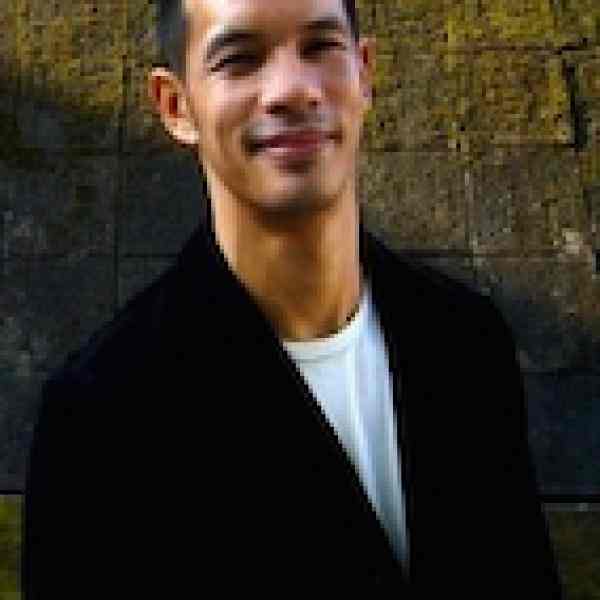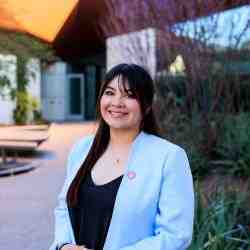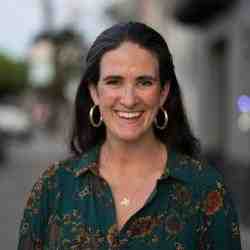Introduction
Laurindo is creating replicable online communities that enable LGBT and HIV-positive youth to connect and collaborate with community organizations, service providers, government institutions – and one another – to accelerate the movement for gay rights and sexual health in Southeast Asia and beyond.
The New Idea
Laurindo Garcia’s B-Change Group is improving the health and wellness of Southeast Asian LGBT and HIV-positive youth through mass deployment of web communities that guide users through the milestones of a life transition. For a population that’s highly mobile but severely underrepresented, B-Change’s platforms are a source of information and morale in a space with few relevant stories to turn to. By designing these platforms for instant access, maximum scale, and easy replication, Laurindo ensures that every person is able to learn from narratives similar to theirs – and these connections translate to both personal and institutional change.
B-Change’s peer support communities start with stories, knowledge, and discussion, but are built intentionally to drive action and leadership at increasing scales. Through peer Q&A forums, users turn stigmatized experiences into an opportunity for mentorship. Through directories, service providers are able to reach their customers more effectively. Through ratings and incentives, both sides of the equation are rewarded and supported in their efforts. From this collection of touchpoints emerge new leaders and new collaborations driven by the unique voice and perspective of LGBT communities in the developing world.
B-Change’s platforms and its unique organizational structure also pave the way for new alliances to form globally and across communities. B-Change Foundation, based in Manila, works with public, private, and citizen sector organizations to connect youth to the right resources for health and action. B-Change Technology, based in Singapore, is distributing online tools to community organizations across the world looking to strengthen their work. B-Change Insights, based in New York, is synthesizing user data into knowledge products that inform the work of larger institutions looking to better reach the LGBT and HIV+ population.
In sum, Laurindo is creating long-term platforms, technologies, and insights that enable everyone, from a young person to a community leader to a multinational corporation, to play a stronger role in improving health outcomes of LGBT youth and young people living with HIV. All of this is driven by the voices, consumer power, and data from these young people themselves – and a series of platforms that turn a moment of crisis and transition into a pathway toward large-scale change.
The Problem
Around the world, people from sexual and gender minorities are subjected to a diverse range of human rights abuses, social stigma, and discrimination. According to a UN report, there are still around 76 countries where same-sex conduct is illegal and at least 5 countries where homosexuality is punishable by death. Under the shadow of these human rights threats and social stigma, young LGBT people and those who are still exploring their gender identity and sexual orientation struggle to find communities of peer support, or reliable information on issues such as health, well-being, and social protection. In the absence of this, youth are vulnerable to abuse, mental health issues, and risky sexual behavior.
Change is happening. In the US, gay marriage is now legal in 36 states, and the Supreme Court is soon making a decision on states’ rights to refuse gay marriage. Southeast Asia is moving in a similar direction. In Vietnam, New Year’s Eve 2015 brought with it the repeal of a ban on gay marriage, and in 2014, lawmakers in the Philippines have begun to move on increasing punishment for hate crimes targeted at LGBT populations. But these changes are not happening quickly enough in a period when everything else is changing faster than ever. More than a million Filipinos leave the Philippines to work abroad every year, and the ASEAN Economic Community integration promises to increase labor mobility between Southeast Asian nations. The life of any young person is more about change than ever before. The traditional structures of community support and service are becoming strained in the face of these transitions.
In recent years, the internet has become a refuge for LGBT communities, especially the youth, as it offers anonymity and an opportunity to build “safe spaces” and share relevant knowledge. However, most web-based platforms, campaigns, and resources are developed in the West and there is a lack of technological resources able to engage non-Western and non-English speaking LGBT communities. As a result, existing online initiatives are missing the voice and perspective of LGBT people from the developing world. This missing link makes it difficult to translate high-level international policy into grassroots impact since policymakers are unable to communicate in the platforms where future LGBT leaders are engaged.
Despite all of this, the LGBT support community in cities like Manila, Jakarta, Kuala Lumpur, Bangkok, and Singapore has been growing, and people have stepped up to provide services, organize communities, and attempt to stir change at greater levels. Many are trying to harness social media and the internet to supplement their efforts, but face resources barriers to accomplishing this at the scale they want. Rather than broad, meaningful, and continuous engagements, what tend to happen are one-off campaigns or one-to-one outreach that require continuous effort and build little long-term social capital. This leads to a “leaky faucet” of care: between the one-off exchanges, from diagnosis to the first treatment, from the first day in a support group to the time when people might step up as leaders, young sexual and gender minorities find themselves swept back in their daily stigmas and their life changes, and often lose the hope and will to continue to the next step of the transition process.
Missing from the landscape are an instantaneous way to plug into a community that takes the user to the next step of their journey; a platform for community leaders and service providers to not only continuously engage their constituents, but connect them to the rest of the ecosystem; a mechanism that allows people to evolve organically in the way they channel their identities into active contribution for themselves and others; and a greater movement to channel the sheer numbers of (currently fragmented) communities in transition into a force for change at the level of international policy, industry trends, and global representation.
The Strategy
In May 2015, B-Change launched its first group of web applications: BE, which is focused on life as a young LGBT person in Southeast Asia, and PLUS, which focuses on the experience of living with HIV. In five years, their work aims to support over 500,000 LGBT youth and young people living with HIV within their five initial target cities: Singapore, Manila, Kuala Lumpur, Jakarta, and Bangkok.
In order to grow this user base, B-Change will focus over the next six months on two strategies: partnerships with service providers and organizations who introduce their constituents to the platform, and a media campaign built around personal stories of young gender and sexual minorities from Southeast Asia. Both strategies have been informed and amplified by B-Change’s previous project, HIV Advocates, a partnership with Levi Strauss Foundation which generated social media data from more than 20,000 followers online, and garnered results for (engagement) and from (data) community practitioners around the world.
Both BE and PLUS use the same skeleton software that includes a peer-driven Q&A system, a central collection of stories and informational resources, and a service directory that allows people to locate the nearest available services and community groups and rate their experience. Multilingual Community Managers are available in each city to answer questions in real time and make referrals to service providers and local community groups as appropriate. Both were developed in tandem over the past year through iterative beta testing.
Taken together, these platforms enable people to connect with each other on both local and global scales. A user in Manila is as likely to find new information about a community of advocates in their neighborhood as they are to exchange cultural insights with someone living in Bangkok. Someone who moved from Bangkok to Singapore is able to access local information translated to Thai, and find others in the area who have been through the same transition. Community groups are able to participate as both leaders and peers: they can play a more global role in answering questions from their own experiences, but also are able to ask other groups about their strategies, struggles, and successes.
In the long-term, Laurindo sees powerful potential in the indirect route: not just through scaling these specific communities and platforms, but through inspiring and supporting the capacity of other organizations to implement their own web-based solutions. Through a USAID grant, B-Change has already replicated key elements of its work – web solutions for peer support and an accompanying measurement & evaluation framework – to LGBT-serving organizations in the Middle East and North Africa. Before the platforms’ official release, beta testers of BE and PLUS have gone on to create their own, local web-based replications after interacting with the potential of such a platform. By 2023, Laurindo expects to see some of B-Change’s work being adapted for other regions in Asia, Latin America, Africa, and Europe for sectors ranging from mental health to climate change preparedness.
B-Change’s organizational model was designed to promote and accelerate this rapid replication. As BE and PLUS gain traction and activity, B-Change Technology (BCT) will integrate the learnings into new versions of the platform that will be made available on the market for community organizations and companies seeking to implement the same type of web solution to their work. B-Change Insights (BCI) will extract the larger trends in user data and package them into knowledge products, which will inform and shift practices for multinational companies and development institutions. Internally, this data will uncover opportunities for next-generation platforms that the B-Change Group can quickly design, develop, implement, distribute, replicate – then gather new data and identify new opportunities through. The B-Change structure creates the reflexive capacity and global reach for Laurindo to constantly be a first mover in technological innovation, drive mass adoption, and achieve systemic change.
The Person
Laurindo grew up in Australia, at a time when his immigrant family was the only Asian family in town. Laurindo’s father had been a student activist in the Philippines and was forced to migrate when he was blacklisted by the Marcos dictatorship. In this new land, his father made a living as an entrepreneur, among the first to begin importing Filipino food, then Southeast Asian food generally, into Australia. Laurindo got his first exercise in developing a work ethic, an entrepreneurial spirit, and an independent mindset as a child contributing to the family business – there at the center of an enterprise that was tapping into and shaping the flow of goods between Southeast Asia and Australia.
In his teenage years, Laurindo came out as gay to his family, and was met with support and love. However, the same teenage years were accompanied with struggle and loneliness when it came to his identity: as an Asian man, as a sexual minority. Laurindo found refuge in writing, storytelling, and systems. In his early teens, he turned a weekly writing assignment into a narrative serial, empowered by the fact that he had an audience. Around the same time, he made his name as an active participant and eventually a member of the team at his school library, where he was fascinated by the way information was organized and disseminated.
During college, this fascination evolved into an interest in biology – specifically, the interplay between organizational structures and environmental systems, which came to inform some of his early work in environmental activism. He also became involved in journalism and storytelling during these years. After college, Laurindo decided to move to the United States on his own, seeking new opportunities and experiences. This was the start of many more years spent living in different corners of the world – in the US, Europe, and Asia – while working for diverse industries. It also gave him deep insights into the lifestyle and issues of LGBT communities around the world, which triggered his initial involvement in LGBT rights advocacy.
Later in his 20s, the increasing popularity of the internet led him to explore the power of new media. Upon his return to Australia, he started one of the country’s first online magazines and online radio stations for the ABC network. He also became the driving force behind the LGBT Asia news portal called Fridae.com.
A turning point in Laurindo’s life came when he was unexpectedly diagnosed with HIV in 2004. He relied on his family and friends for support during the years following this, and began to work more intensely with his father’s enterprise. However, in 2009, he was stopped at an airport and barred from entering Singapore on the basis of his HIV+ status. This travel sanction meant separation from his long-term partner and severe limitations to his personal freedom. Laurindo chose to challenge the system and the law which discriminated against HIV+ foreigners – an appeals process which was extremely difficult in the Singaporean political landscape. He eventually won the appeal and set a precedent for others with similar cases.
This victory was a personally liberating experience for Laurindo, especially as he began to hear from other LGBT youth who were inspired by his story to take action. Because of this experience, he chose to devote his life to developing and empowering the LGBT community, especially young people who struggle with stigma and depression, through his experience in communication, technology, and entrepreneurship.




